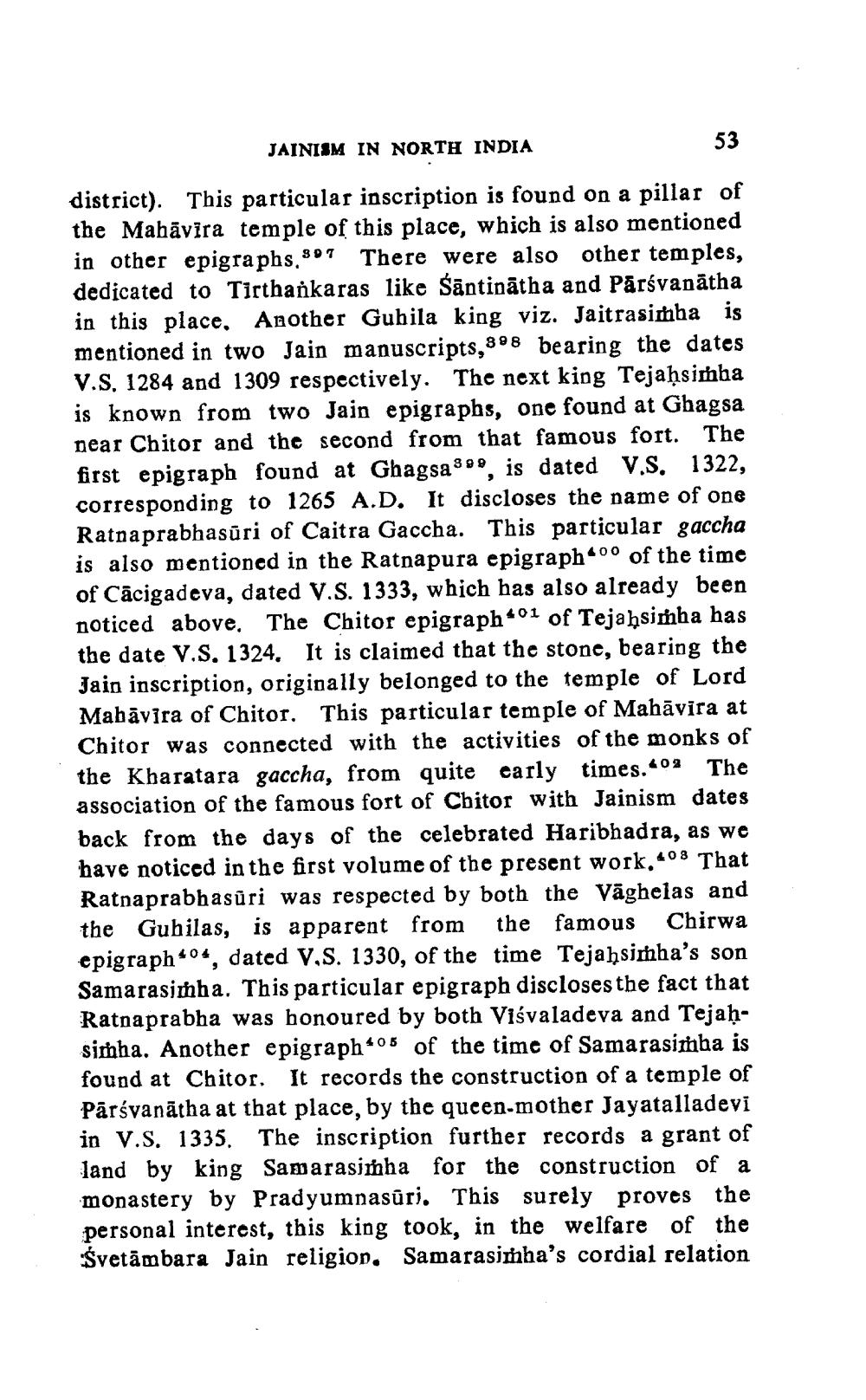________________
JAINISM IN NORTH INDIA
district). This particular inscription is found on a pillar of the Mahāvīra temple of this place, which is also mentioned in other epigraphs, 307 There were also other temples, dedicated to Tirthankaras like Śāntinātha and Pārsvanātha in this place. Another Gubila king viz. Jaitrasimha is mentioned in two Jain manuscripts, 388 bearing the dates V.S. 1284 and 1309 respectively. The next king Tejaḥsimba is known from two Jain epigraphs, one found at Ghagsa near Chitor and the second from that famous fort. The first epigraph found at Ghagsa3®, is dated V.S. 1322, corresponding to 1265 A.D. It discloses the name of one Ratnaprabhasūri of Caitra Gaccha. This particular gaccha is also mentioned in the Ratnapura epigraph“00 of the time of Cācigadeva, dated V.S. 1333, which has also already been noticed above. The Chitor epigraph-01 of Tejahsimha has the date V.S. 1324. It is claimed that the stone, bearing the Jain inscription, originally belonged to the temple of Lord Mabāvīra of Chitor. This particular temple of Mahāvīra at Chitor was connected with the activities of the monks of the Kharatara gaccha, from quite early times.409 The association of the famous fort of Chitor with Jainism dates back from the days of the celebrated Haribhadra, as we have noticed in the first volume of the present work.408 That Ratnaprabhasūri was respected by both the Vāghelas and the Gubilas, is apparent from the famous Chirwa epigraph 404, dated V.S. 1330, of the time Tejahsimha's son Samarasimha. This particular epigraph discloses the fact that Ratnaprabha was honoured by both Visvaladeva and Tejahsimha. Another epigraph-05 of the time of Samarasimha is found at Chitor. It records the construction of a temple of Pārsvanātha at that place, by the queen-mother Jayatalladevi in V.S. 1335. The inscription further records a grant of land by king Samarasimha for the construction of a monastery by Pradyumnasūri. This surely proves the personal interest, this king took, in the welfare of the Svetämbara Jain religion. Samarasimha's cordial relation




